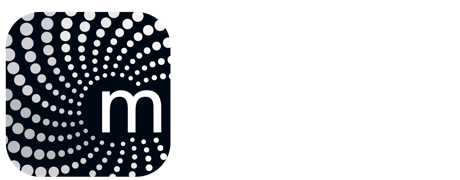RESOURCES
PUBLICATIONS
Telework, mindset & behavior – how the COVID-19 crisis could generate sustainable competitive advantages
The world is amid the COVID-19 pandemic, which impacts society in many aspects. Due to quarantine, routines drastically changed, modifying our relationship with the environment. In the meantime, enterprises and individuals are still adapting to this new scenario.
Crisis often offers opportunities to deconstruct established patterns and routines; however, a certain level of preparedness and openness is required. In this article, we focus our attention on how telework could change the dynamics of work…
How mindfulness can drive successful leadership
This article dives into relevant scientific publications regarding the impact of mindfulness on leadership, intending to clarify significant aspects of this topic. We will focus not only on showing the lights of mindfulness but also the shadows projected by a misunderstanding or misconception of this concept and its practice. Based on theoretical and empirical research…
People, Mindset and Culture – Prerequisites for agile organizations
In today’s business world agility has become a magic word. It seems that in agility lies a potential solution to tackle the demands of the changing world. However, as many broad concepts in the world of business, the linking signifier between the word agility and people’s perception varies. In this sense, this article aims…
Empowering people – an ongoing journey far beyond the hand-over of a task
Anna and Lukas work in a multinational company, both in finance and they’ve been leading teams for the last four years. They report to the same manager who supervises a set of processes, framed in each of the different groups under his scope of responsibility…
Of heroes and role models: the leadership’s archetypes
For many years, Paul has been the CEO of a successful multinational company in the FMCG business. He is seen as a charismatic leader and often emphasizes the company’s purpose and the values the company agreed to promote and to adhere to. Open-mindedness, responsibility, respect, cooperation, and…
The dark side of communication skills – why "killing the messenger" does not solve the problem
Many times we’ve heard that communication is one of the organization’s biggest problems. In complex social systems, such as organizations, how people interact with each other and with structures, processes, and routines is fundamental to the company’s success.
Spirituality – esoteric nonsense or the master key to successful leadership?
“Change is the only constant in life” – After all these centuries, it seems that Heraclitus was right. However, there is something that he couldn’t predict; the pace of change. The post-industrial…
Digital leadership: 7 Basic behaviors to succeed
Another day at home, another day at the office. After a year of working remotely, we’ve all changed somehow our routines and even our home’s settings. A year ago…
How can digital leaders foster their team’s accountability?
Accountability has been a trending topic for leaders for many years. They wish to be surrounded by people who feel responsible, act independently and…
VIDEOS
Die FPL Chance
Stärken Potenziale
Selbstverständnis als Führungskraft
Definition von Mindset
FPL Unternehmensmodell
Ergänzung im Team
BOOKS
Below, you can find links to books. We find these books very helpful in the context of unleashing the potential of people.
Please contact us with suggestions on extending the list of books.
ARTICLES
Chiesa, Alberto; Serretti, Alessandro (2010): A systematic review of neurobiological and clinical features of mindfulness meditations. In Psychological medicine 40 (8), pp. 1239–1252.
Crocitto, Madeline; Youssef, Mohamed (2003): The human side of organizational agility. In Industrial Management & Data Systems.
Dweck, Carol S.. Mindset: The New Psychology Of Success. New York : Ballantine Books, 2008. Print.
Felipe, Carmen M.; Roldán, José L.; Leal-Rodríguez, Antonio L. (2017): Impact of organizational culture values on organizational agility. In Sustainability 9 (12), p. 2354.
Gallup “The Relationship Between Engagement at Work and Organizational Outcomes”, 2016 Q12® Meta-Analysis: Ninth Edition
Holbeche, Linda (2015): The Agile Organization: How to build an innovative, sustainable and resilient business: Kogan Page Publishers.
Kirkman, Bradley L.; Rosen, Benson (1999): Beyond self-management: Antecedents and consequences of team empowerment. In Academy of Management journal 42 (1), pp. 58–74.
Pfeffer, J., & Jeffrey, P. (1998). The human equation: Building profits by putting people first. Harvard Business Press.
Reb, Jochen; Narayanan, Jayanth; Chaturvedi, Sankalp (2014): Leading mindfully: Two studies on the influence of supervisor trait mindfulness on employee well-being and performance. In Mindfulness 5 (1), pp. 36–45.
Shapiro, Shauna L. (2009): The integration of mindfulness and psychology. In Journal of clinical psychology 65 (6), pp. 555–560.
Srivastava, Abhishek; Bartol, Kathryn M.; Locke, Edwin A. (2006): Empowering leadership in management teams: Effects on knowledge sharing, efficacy, and performance. In Academy of Management journal 49 (6), pp. 1239–1251.
Stone, A. Gregory; Russell, Robert F.; Patterson, Kathleen (2004): Transformational versus servant leadership: A difference in leader focus. In Leadership & Organization Development Journal.
Wadhwa, Anu; Kotha, Suresh (2006): Knowledge creation through external venturing: Evidence from the telecommunications equipment manufacturing industry. In Academy of Management Journal 49 (4), pp. 819–835.
Zhang, Xiaomeng; Bartol, Kathryn M. (2010): Linking empowering leadership and employee creativity: The influence of psychological empowerment, intrinsic motivation, and creative process engagement. In Academy of Management journal 53 (1), pp. 107–128.































